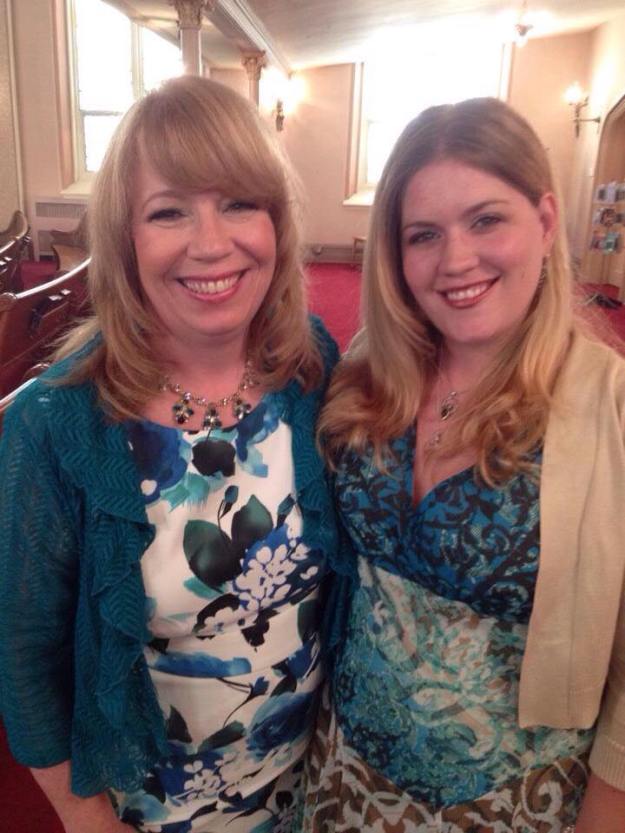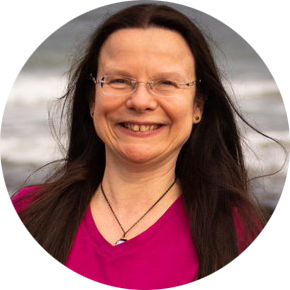This month’s interview is with Debra Lockwood Spencer.

My name is Debra Lockwood Spencer (pictured above, left).
My brave thing happened when I was 17 years old, while spending nine weeks in South America as an exchange student.
It was the summer before my senior year in high school, and I was fortunate to be living with a wonderful family in a prosperous suburb of Lima, Peru. During that time, I got to know a number of American exchange students, along with members of their host families. We went on cultural and social outings together and met at dinners and parties. Other than Marisol and Ceci Raffo, my “host sisters”, my two best friends were Maya Puyo and Paula Hawkins. Maya had attended my high school as an exchange student during the previous year, and Paula was the American student the Puyo family was hosting.
Although Maya and Paula attended school in the Lima area, the Puyo family owned a ranch in the Andes near a town called Huancayo. A long train ride on one of the highest railroads in the world brought several of us to their ranch for a holiday.
I remember suffering from altitude sickness, experiencing nausea and headaches as the switchback rail car climbed higher and higher.
We arrived after nightfall and despite my illness, I was overwhelmed by the midnight splendor of the thick carpet of stars. The thin atmosphere and lack of light pollution allowed me to appreciate the heavens with new awe and wonder. During that week, Paula and I became particularly close, as we rode horses, watched condors, and even experienced a slight earthquake there near the top of the world.
Several weeks later, almost 100 of us flew from Lima to Cuzco, the capital of the Inca empire.
Another short train ride took us to Machu Picchu, the famous “lost city of the Incas”.
Back in 1970, this World Heritage site was still off the beaten track. We climbed the terraces and explored the ruins of the city, marveling at the engineering and astrological knowledge that had transformed huge stone structures into a sacred calendar to chart the movement of the sun across the sky.
When our large group arrived at the airport for the return trip to Lima, we were dismayed to discover that the flight had been oversold. Some of us were actually expected to stand in the aisle, and there was no room in the baggage compartment for the large woven rugs and pottery pieces that many of us had bought at the native markets. One chaperone and several students had a quick discussion, deciding we would stay an extra night and travel more comfortably. I was among those several students.
I remember the five of us were having coffee at the airport when we watched the small aircraft speed down the runway.
As it rose into the air, I had time to regret that Maya and Paula had boarded before us, and would not be spending that extra night in Cuzco. Suddenly, the plane seemed to hesitate, lurch, and then make a sickening drop. Before our unbelieving eyes, the plane crashed into the side of a mountain and exploded. Suddenly, the air was filled with a thick acrid smoke, erasing our view and clogging our throats. One of the girls beside me began to suffer from an asthma attack. I really have no memory of how we got back to the hotel, or whom I may have talked to using my imperfect high school Spanish. Dramatic though it seems, I remember standing in a crowded street several hours later, and having a smeared page of newsprint thrust into my hands.
On that sheet was printed the list of passengers believed aboard the aircraft, and my own name was among them.
There were no survivors of that Lanza Airlines flight, my friends Maya and Paula among the mostly adolescent victims. Almost 100 people died, and it took hours to connect with my Peruvian family back in Lima to advise them that I had not been aboard. In those days, there were no cell phones or laptops and Peru was participating in the World Cup, which even limited radio news. Only that situation can explain the fact that back in the United States, my family spend 24 hours believing I had died. My mother had found my last letter, confirming the dates of our Cuzco trip and describing our travel plans. As a joke, I had apparently doodled a cartoon plane, spiralling out of the sky. I can’t explain that, or why Paula had confided to me that before she left New York, she had dreamed of perishing in a plane crash. She had told me this in Huancayo, while she strummed her guitar and sang the lyrics to “Leaving on a Jet Plane.”
Our little group did indeed fly out of Cuzco the next day. I saw the wreckage from the window, and realized that I was not afraid to fly, nor would I ever experience those fears.
Had God wanted me to die in a plane crash, He had His perfect opportunity and He had spared me for reasons of His own.
I actually believe that He spoke to me and that He wanted me to become a Spanish teacher. During the days to come, friends and relatives of the victims poured into Lima. I had been mentioned as an acquaintance in letters sent by certain students, and parents wanted to know, “Where might my daughter have developed her last roll of film? Was my son happy during the days and weeks before? Is there any chance my child could still be alive, wounded and wandering among the wreckage?” I talked to host families and school teachers, acting as a very imperfect translator expressing concepts that had never been covered in a classroom textbook.
Although I had never heard the terms, I do believe I suffered from a type of survivor’s guilt, or PTSD, due to my survival in the face of so many wonderful young lives lost. When I returned to my home in Parma, Ohio, the joys of my Peru trip were overshadowed by grief and depression. I communicated for years with many of the affected families, until my mother quietly suggested to the bereaved parents that the burden of being a “substitute daughter” was too heavy for me to bear. I am not sure whether my story fits the criteria of a “Brave” moment….but it defined my life and certainly the direction of my career (I am a retired World Languages teacher).
However, I know without a doubt that there is still something I am meant to accomplish during this lifetime, because Peru was only the first of the five occasions on which I almost died.
I appreciate the chance to share my story. Maybe that is my remaining purpose. Who knows?
Debbie was BRAVE and opened her wonderful Etsy Shop this year!
Visit it here: Altered Art Treasures
Follow Altered Art Treasures on Facebook!
Read the other BRAVE interviews here: https://kwrites.com/?s=The+BRAVE+Interview
If YOU would like to be interviewed for this series about something brave you have done in your own life, email me at kmcwrites@gmail.com!


Great story. We can’t know why bad things happen to good people. We never know when it is our time or the time of others to depart this earth. I know this especially from my experience as an ICU nurse. Important to live each day as fully as possible and enjoy what is important!
You put that beautifully, Amy! I wholeheartedly agree. I was a hospice nurse for years and we had patients of every age, including children. We never know how long we have. Living every day the best we can is so important.